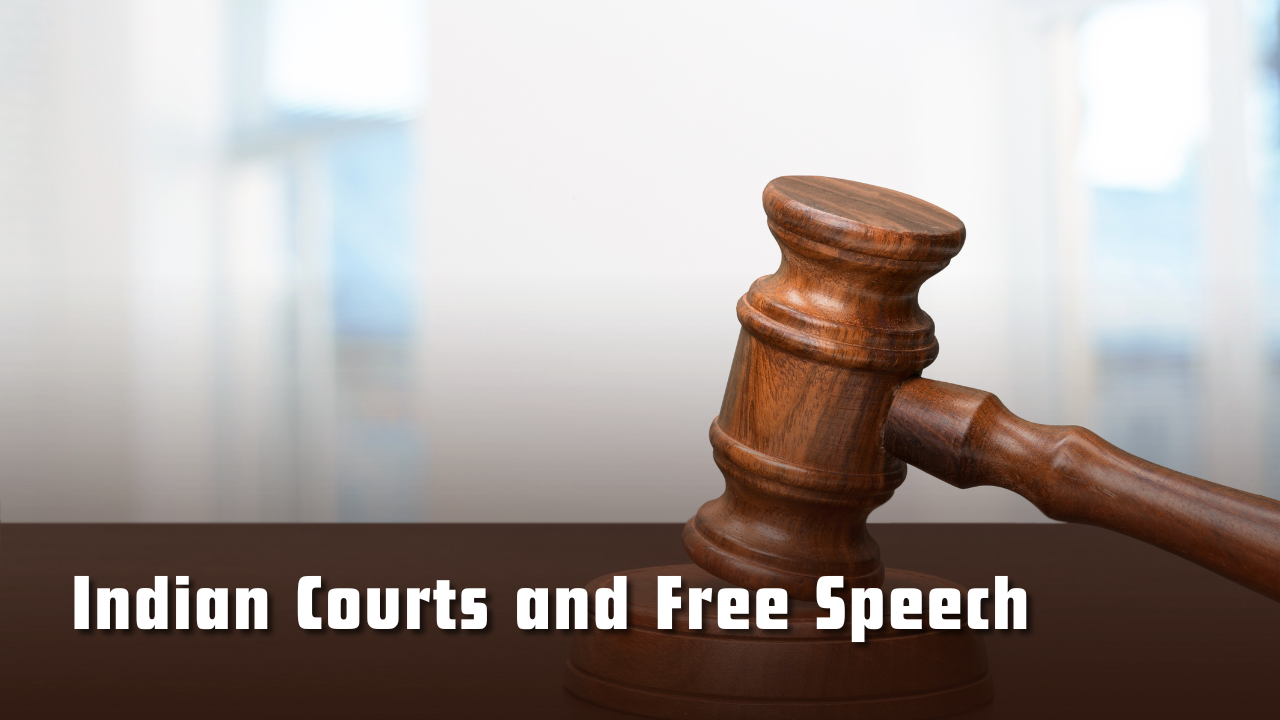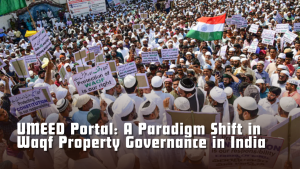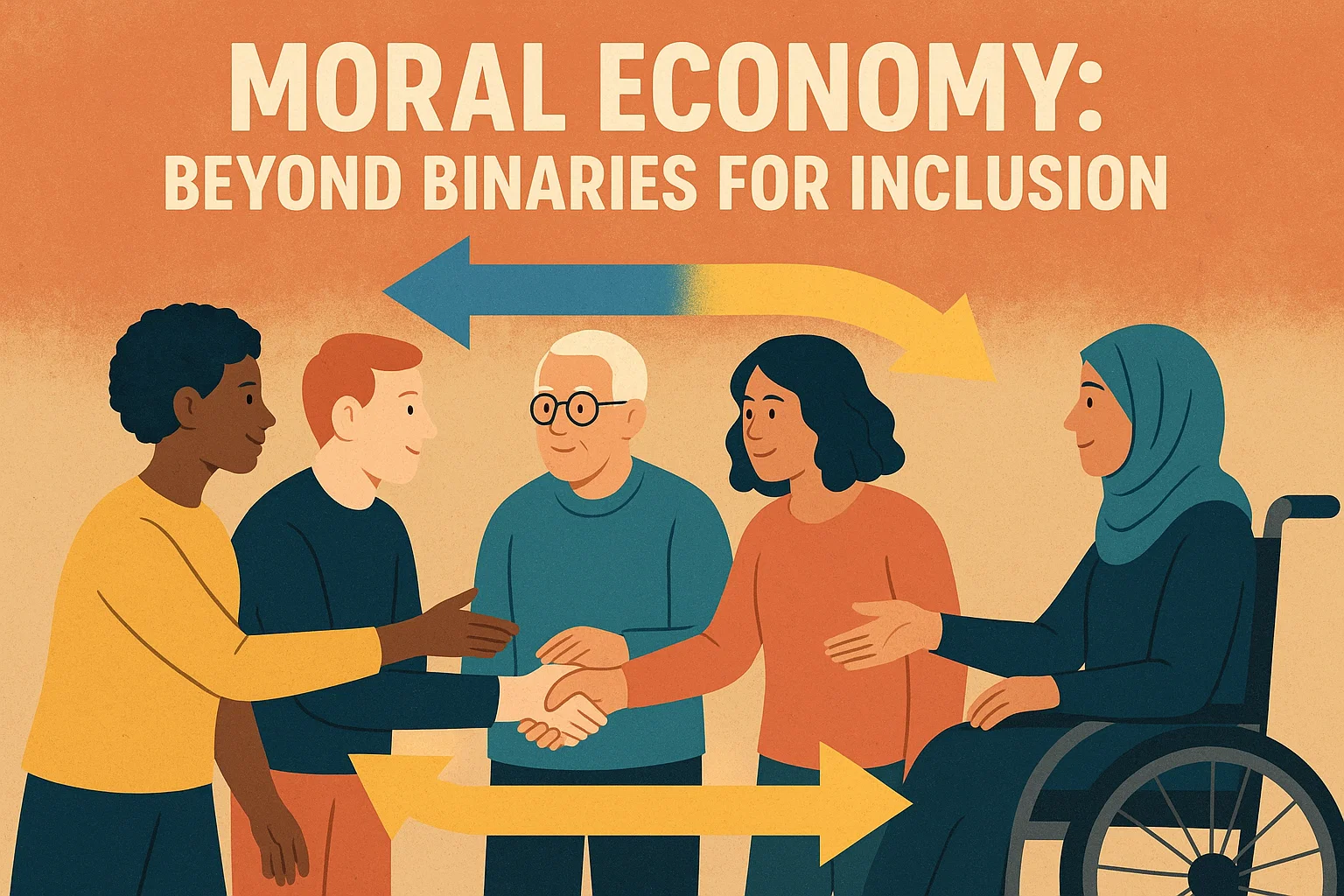Indian Courts and Free Speech
Judicial sensitivity to sentiments is a sign of regression
Context: In recent years, Indian courts appear to be managing free speech rather than defending it — a shift that marks a dangerous inversion of constitutional values.
More on News
- The judiciary, once seen as the counter-majoritarian safeguard of Indian democracy, is now increasingly acting as an arbiter of civility, issuing judgments rooted in sensitivity, decorum, and sentiment, rather than constitutional principles.
- This drift away from the robust protection of freedom of speech under Article 19(1)(a) poses a serious threat to democratic discourse in India.
Important Judgements
Romesh Thapar v. State of Madras (1950): One of the earliest and most influential cases, the Court struck down the Madras Maintenance of Public Order Act, holding that restrictions on free speech must be narrowly defined and linked only to “security of the state,” not merely “public order.”
Brij Bhushan v. State of Delhi (1950): Decided alongside Romesh Thapar, this case further clarified that pre-censorship of publications is generally unconstitutional unless justified under the narrow grounds in Article 19(2).
Shreya Singhal v. Union of India (2015): A landmark for digital free speech, the Court struck down Section 66A of the IT Act, declaring it unconstitutional for being vague and overly broad, and thus violating the right to free speech. This case protected online expression and set a precedent for digital rights.
Free Speech Is a Right — Not a Privilege Subject to Popular Approval
- Article 19(1)(a) of the Indian Constitution protects the right to free speech and expression, even when such speech is provocative, offensive, or unsettling.
- However, recent judicial responses reveal a trend where lawful speech is judged on taste and perceived hurt sentiments, rather than on its legality.
- This was evident when the Allahabad High Court refused to quash an FIR against a 24-year-old man for a social media post criticising the Prime Minister after Operation Sindoor in 2025.
- The court reasoned that emotions must not allow “constitutional authorities” to be disrespected. This sets a troubling precedent — placing state dignity above citizen liberty.
Courts Encouraging Apologies Undermines Constitutional Morality
- The judiciary has increasingly adopted the role of moral guardian, urging apologies for speech that might provoke public outrage.
- In the Kamal Haasan “Thug Life” film controversy, the Karnataka High Court recommended an apology for his comments about linguistic heritage — not because the speech broke any law, but because it allegedly offended sentiments.
- This blurs the line between judicial responsibility and societal appeasement.
- Similarly, in Ranveer Allahbadia’s podcast case, the court questioned whether vulgarity in speech deserves constitutional protection, without establishing a legal threshold like incitement or defamation.
- In another instance, professor Ali Khan Mahmudabad faced legal scrutiny for academic criticism of India’s wartime communication strategy, with courts assessing whether his comment was a “dog whistle” to provoke sentiment — an alarmingly subjective criterion.
Misinterpreting Article 19(2) Weakens Free Speech Protection
- The Constitution allows reasonable restrictions on speech under Article 19(2) only in specific cases — such as incitement to violence, public disorder, or defamation.
- Courts, however, are now conflating emotional disturbance with legal harm.
- This expands the scope of litigation and empowers those who manufacture outrage for political or personal gain, rather than protecting society from actual threats.
- In the Rahul Gandhi defamation case, the Allahabad High Court claimed that free speech doesn’t include the right to “defame” the Indian Army.
- While defamation laws exist, applying them to criticism of state institutions dilutes the democratic principle that citizens hold power and state actors are accountable.
- In yet another disturbing example, a citizen calling the Prime Minister a “coward” faced prosecution under public order and sovereignty clauses of the new Bharatiya Nyaya Sanhita — laws intended for sedition, not satire.
Judicial Process Itself Has Become Punishment
- Courts frequently decline to quash FIRs, arguing that investigations must proceed.
-
- But in such politically charged cases, the process itself becomes punishment.
-
- A summons, investigation, and prolonged legal battle are enough to intimidate and suppress dissent, even in the absence of conviction.
- The “chilling effect” on speech — well acknowledged in American and European jurisprudence — is slowly becoming the norm in India, with courts often turning a blind eye.
- While the Madras High Court has occasionally resisted this regressive trend, broader structural reform is essential.
- Speech must not be held hostage to public outrage or judicial sensibilities. Otherwise, Indian democracy risks becoming a shadow of its promise.
India Needs Principle-Based Speech Jurisprudence
- If Indian courts are to truly uphold the Constitution, they must shift focus from what was said to why the right to say it matters.
- The Constitution protects dissent, not decorum. Judges are guardians of liberty — not curators of culture.
- Encouraging apologies, promoting vague notions of civility, and interpreting outrage as a legal barometer dangerously erode the foundational idea of free speech.
- Apologies should remain personal, not judicially compelled. Free speech should not require societal blessings to be deemed legitimate.
- The freedom to offend is the cornerstone of democratic expression. India’s legal system must reflect this, not suppress it.
Way Forward: Legal Reform and Judicial Courage
- India needs stronger judicial commitment to principle-centric free speech protections.
- Vague laws like sedition and public order clauses must be interpreted narrowly, in favour of liberty.
- Courts should actively consider the chilling effect of criminal proceedings on free expression.
- Moreover, it’s time to institutionalise speech rights through robust doctrines that prioritise liberty over sentiment.
Subscribe to our Youtube Channel for more Valuable Content – TheStudyias
Download the App to Subscribe to our Courses – Thestudyias
The Source’s Authority and Ownership of the Article is Claimed By THE STUDY IAS BY MANIKANT SINGH




